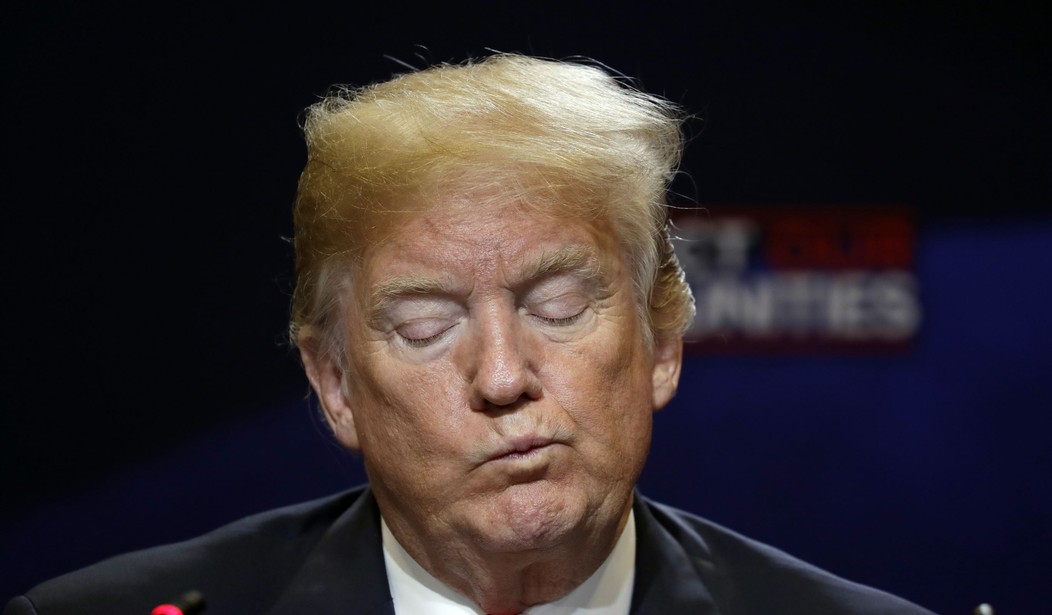This past weekend, President Donald Trump suggested that his presidential campaign may have been the victim of spies or moles who were FBI informants or undercover agents. He demanded an investigation to get to the bottom of the matter.
At the same time that the president was fuming over this, Republican congressional leaders were fuming about the reluctance of senior officials at the Department of Justice and the FBI to turn over documents that might reveal political origins of the current criminal investigation of the president by special counsel Robert Mueller.
Can the president intercede in a federal criminal investigation of which he himself is a subject? Can Congress intercede in a DOJ criminal investigation? Here is the back story.
Mueller was named special counsel so he could investigate serious and demonstrable evidence of Russian government interference in the 2016 presidential election. Because the Trump campaign met with Russian intelligence officials offering campaign assistance, implicit in that investigation is an inquiry into whether the Trump campaign invited foreign interference and agreed to accept or facilitate it.
Mueller is seeking to determine whether there was an agreement between the Trump campaign and any foreign person, entity or government to receive anything of value for the campaign. Such an agreement plus a material step in furtherance of it taken by any of those who joined the agreement would itself constitute the crime of conspiracy, even if the agreed-upon thing of value never arrived.
In the course of examining evidence for the existence of this alleged conspiracy -- which Trump has forcefully denied many times -- Mueller's prosecutors and FBI agents have come upon evidence of other crimes. They have obtained 19 indictments -- some for financial crimes, some for lying to FBI agents and some for foreign interference in the election -- and four guilty pleas for lying, in which those who pleaded guilty agreed to assist the government.
Recommended
Nine of the indictments are against Russian intelligence agents, whom the president himself promptly sanctioned by barring their travel here and their use of American banks and commercial enterprises, even though he has called Mueller's investigation a witch hunt.
Mueller has also come upon evidence of obstruction of justice by the president while in office and financial crimes prior to entering office, all of which Trump has denied. Obstruction of justice consists of interfering with a judicial proceeding -- such as a grand jury's hearing evidence -- for a corrupt purpose.
Thus, if Trump fired FBI Director James Comey because he didn't trust him or because he wanted his own person in that job, that was his presidential prerogative, but Trump's purpose was corrupt if he fired Comey because Comey would not deny that the president was the subject of a criminal investigation -- a basis for firing surprisingly offered publicly by one of the president's own lawyers.
The potential financial crimes appear to be in the areas of bank fraud -- making material misrepresentations to banks to obtain loans -- and money laundering, or the passage of ill-gotten gains through numerous bank accounts so as to make the gains appear lawful. These, too, Trump has denied.
It seems that the deeper Mueller and his team dig the more they find. As lawyers and as federal prosecutors, Mueller's team members have ethical obligations to uncover whatever evidence of crime they come upon and, when professionally feasible and legally appropriate, either prosecute or pass the evidence on to other federal prosecutors, as they did in the case of evidence of fraud against Michael Cohen, a former confidant and lawyer for Trump before he was president.
Now, back to Trump's eruption about FBI spies or moles.
The president cannot interfere with criminal investigations against himself without running the risk of additional charges of obstruction of justice -- interference with a judicial process (the gathering of evidence and its presentation to a grand jury) for a corrupt purpose (impeding his own prosecution or impeachment). Nor can members of Congress see whatever they want in the midst of a criminal investigation, particularly if they might share whatever they see with the person being investigated.
Prosecutors have a privilege to keep their files secret until they reach the time that the law provides for them to go public. Because Mueller is faced with the legal equivalent of assembling a 10,000-piece jigsaw puzzle, he is not yet ready to show his cards. If his cards contain materials from confidential sources -- people whose identities he promised not to reveal -- or if his cards contain evidence he presented to a grand jury, he may not lawfully reveal what he has until it is time to exonerate the president, indict him or present a report to Mueller's DOJ superiors that is intended for the House of Representatives.
Can the president investigate his investigators?
Yes -- but not until the investigation of him is completed. That's because no one can fruitfully examine the legitimacy of the origins of the case against Trump without knowing the evidence and the charges. Trump's allegations are of extreme scandal -- the use of FBI assets by the Obama administration to impede his presidential campaign. Yet if he is exonerated, those allegations will lose their sting. If he is charged with crimes or impeachable offenses that do not have their origins in politically charged spying, then his allegations will be moot.
But if he were to force the DOJ to turn over raw investigative files now to politicians who want to help him, he might very well be impeding the criminal case against him. That would be profoundly threatening to the rule of law, for it provides that no man can be the prosecutor or the judge in his own case. Even Trump's lawyers acknowledge that he could not lawfully do that.

























Join the conversation as a VIP Member